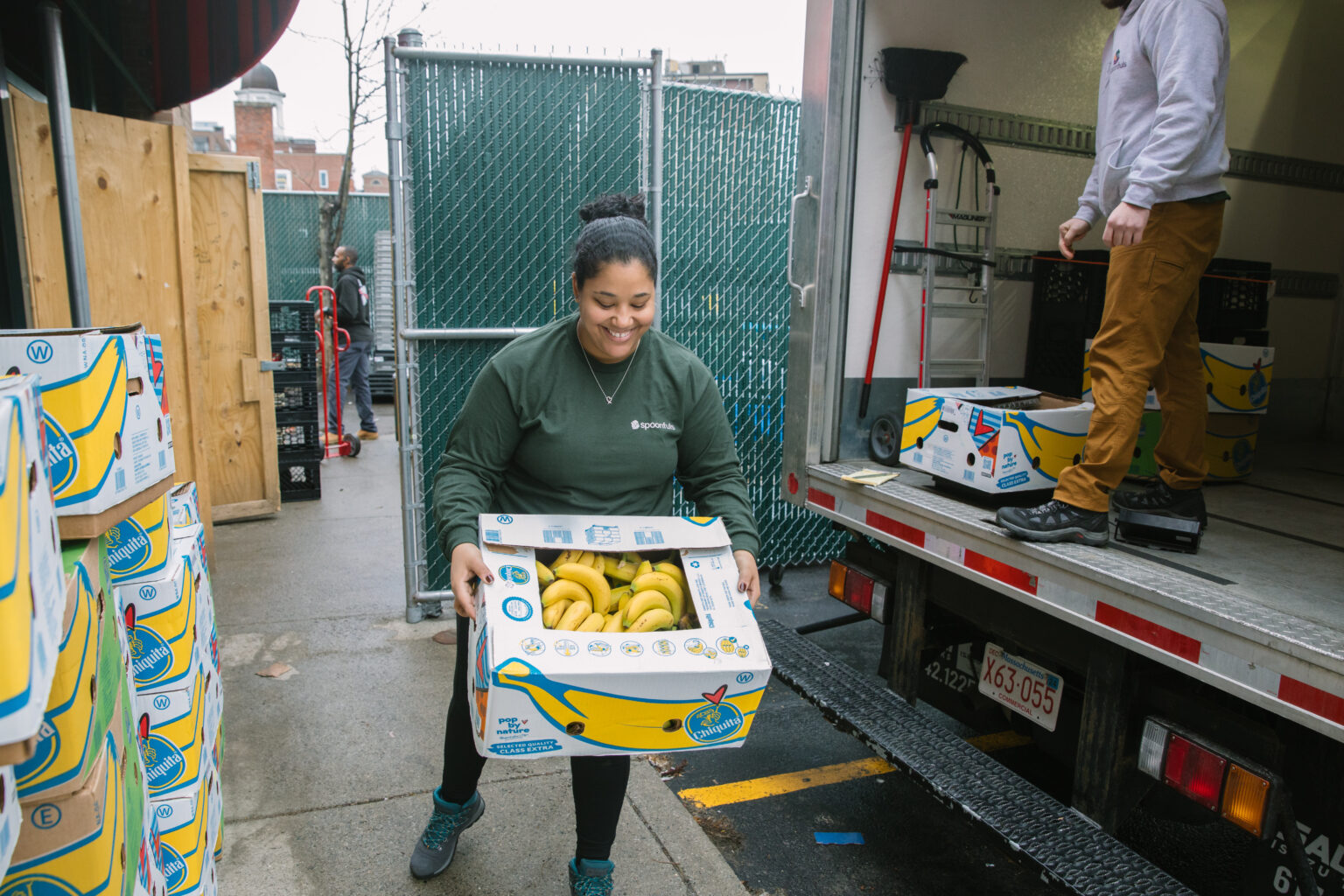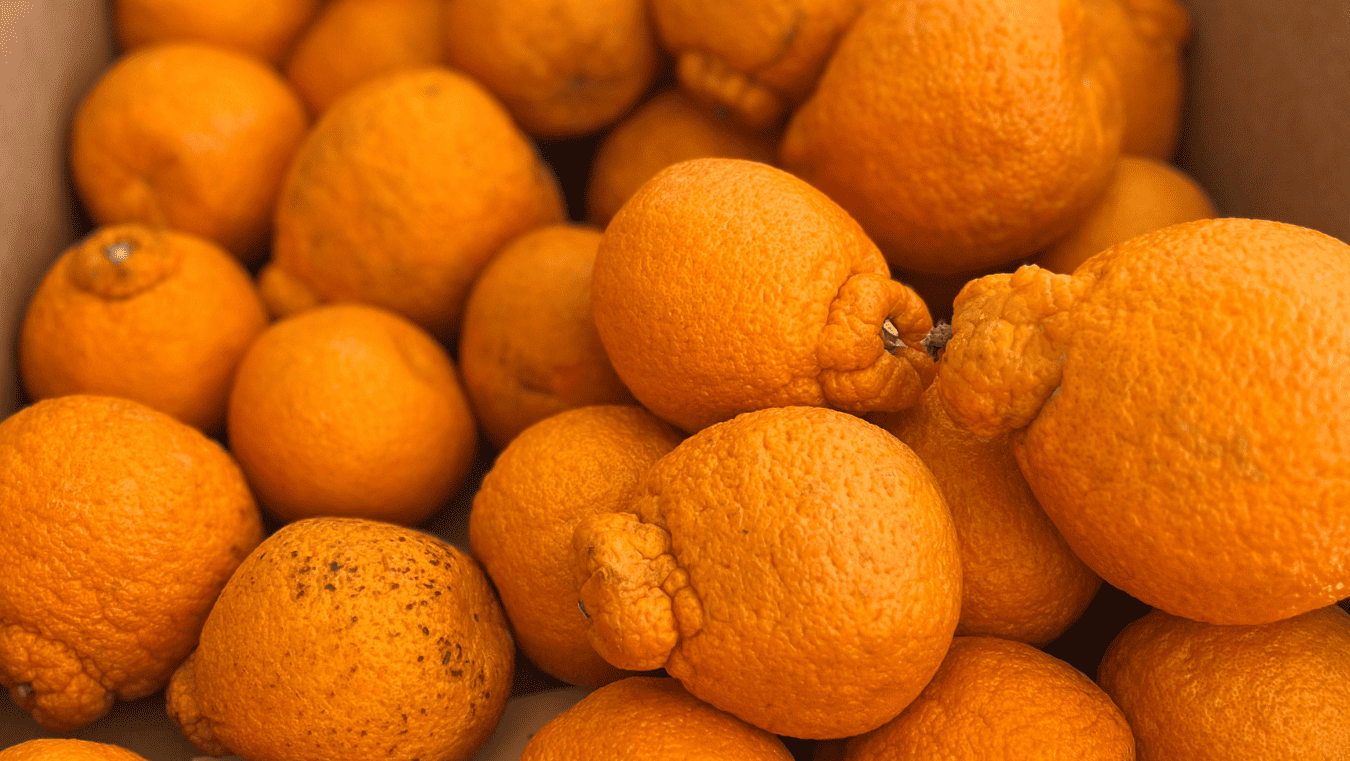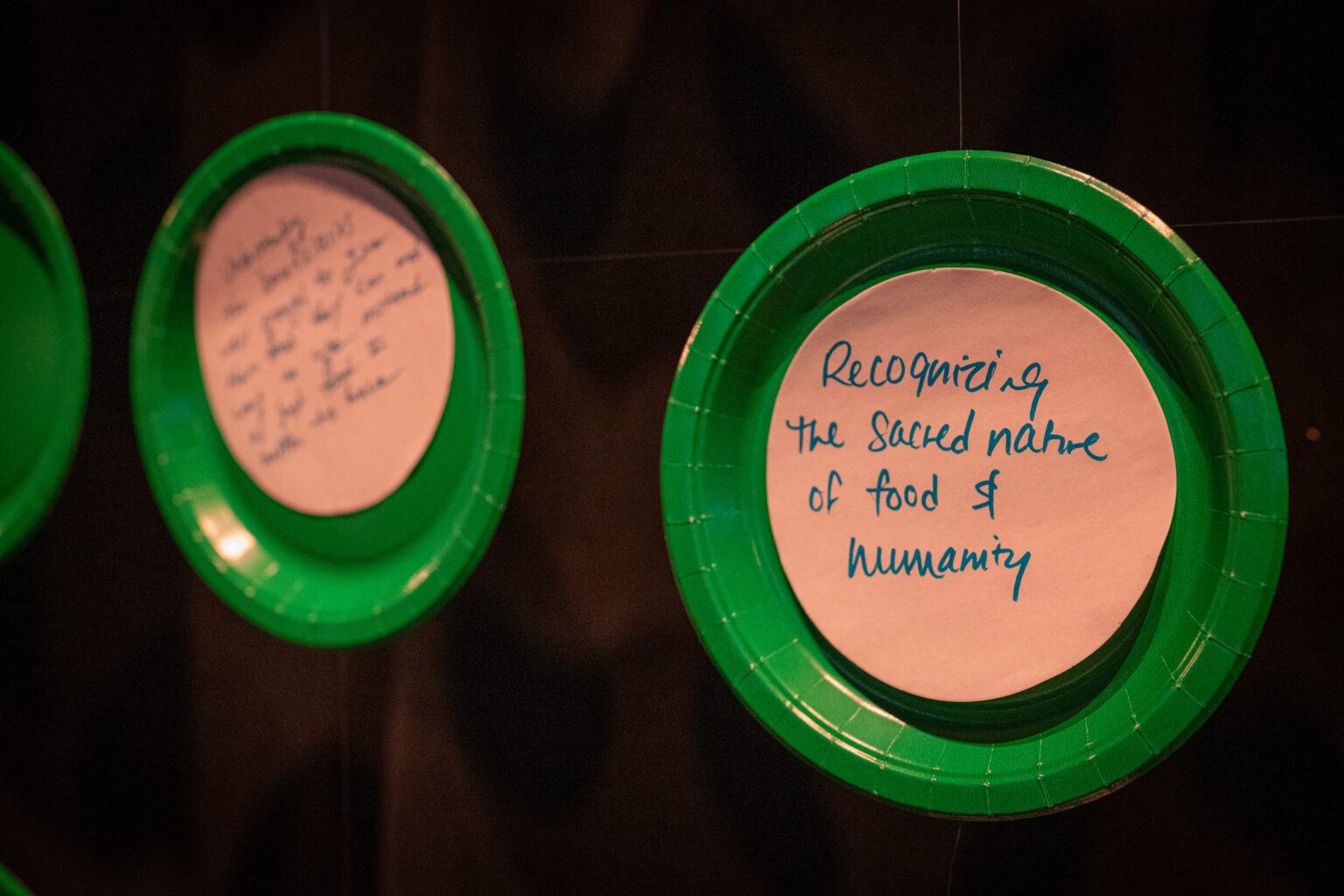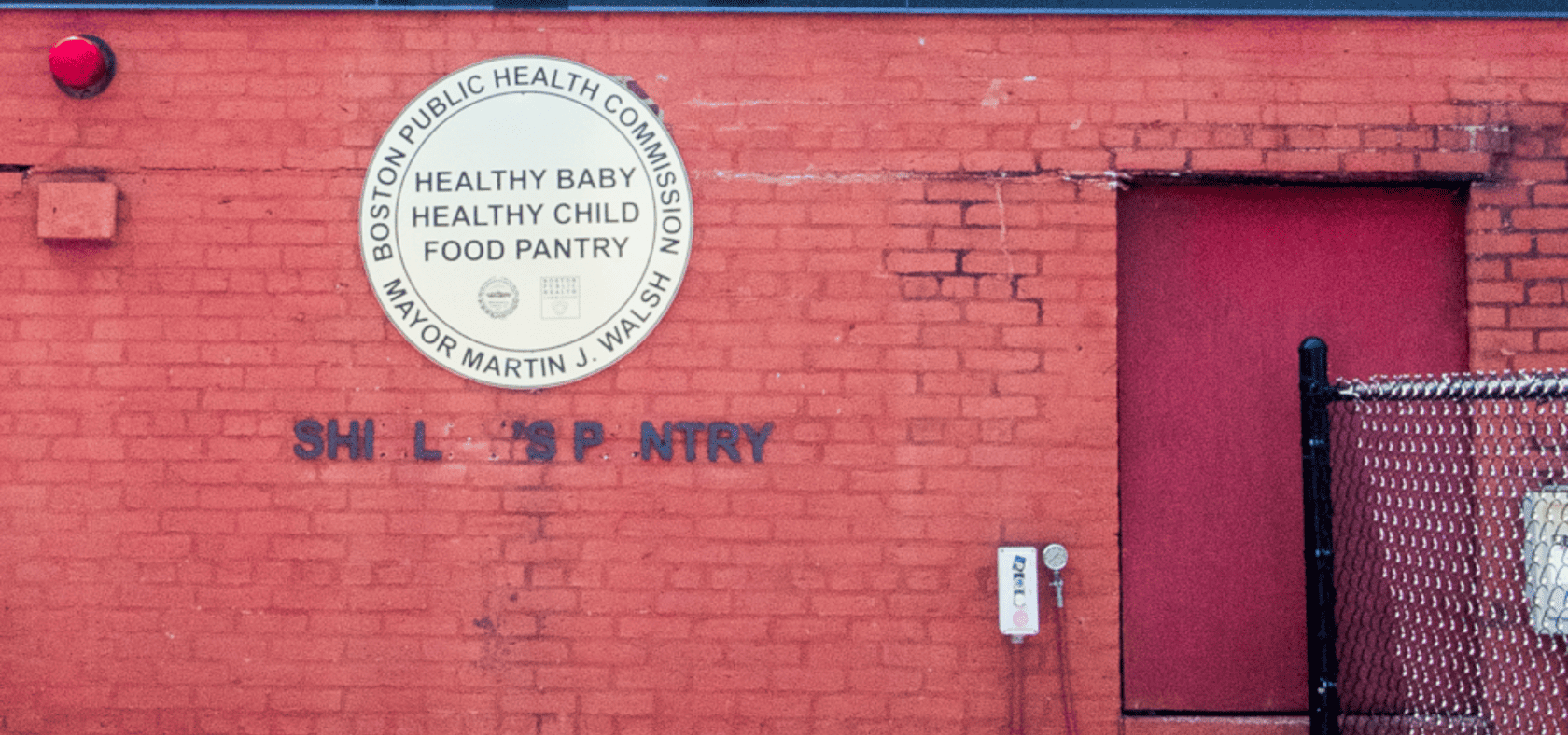Plates not landfills: What you need to know about the updated Organics Waste Ban
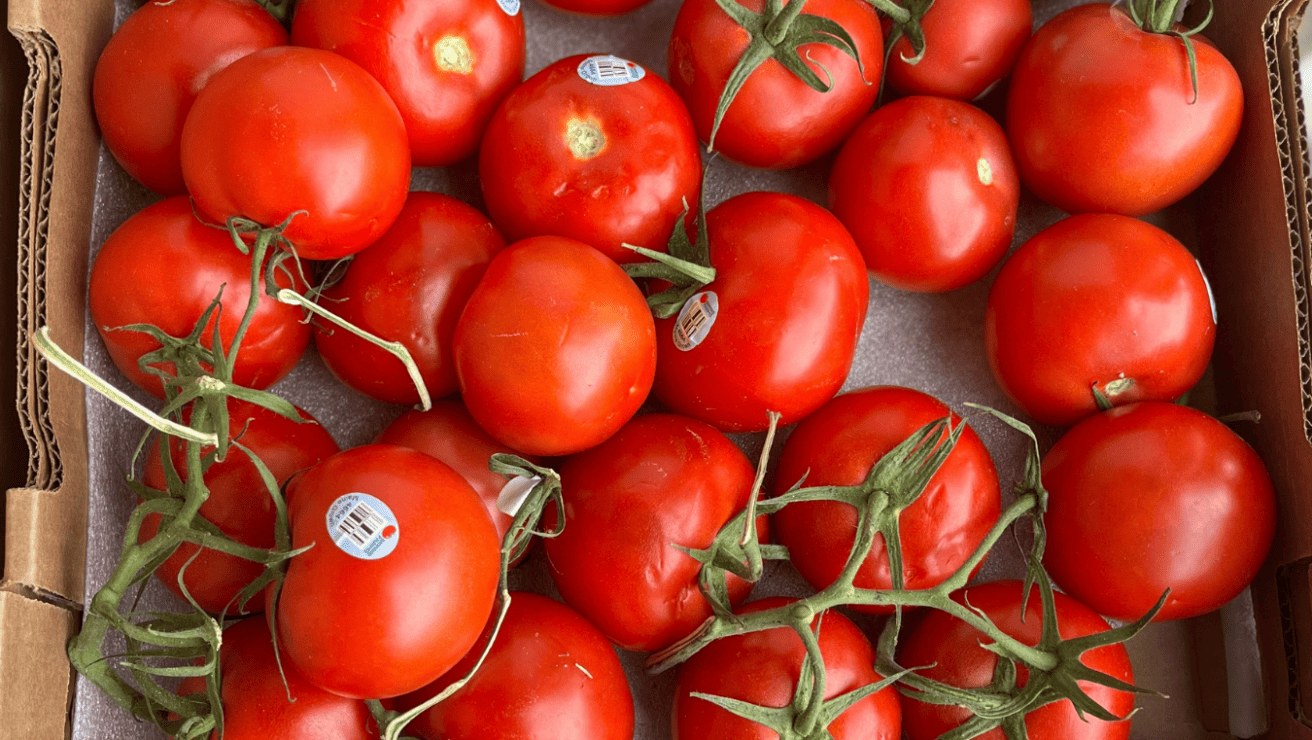
One million tons per year: MassEPA estimates this is the amount of food that goes to waste here in Massachusetts and that doesn’t have to because it could be donated, composted, or turned into animal feed instead. But here’s the good news: Coming this week, the expanded MassDEP Commercial Waste Disposal Ban (the “Organics Waste Ban”) will work to direct more perfectly good food to people’s plates and less of it to landfills.
Beyond the opportunity to feed people, the ban is in keeping with MassDEP’s 2030 Solid Waste Master Plan, which established goals to reduce organic waste disposal by 30 percent by 2030 and 90 percent by 2050. This is a big deal because food is the #1 organic material in landfills, and – when it rots – it produces harmful greenhouse gasses (like methane) that contribute mightily to the climate emergency.
So what is the Organics Waste Ban?
Businesses like grocery stores and wholesalers that deal with a lot of food also deal with a lot of potential waste. Yet just because food can’t be sold doesn’t mean it isn’t still valuable (literally valuable and valuable to people).
In 2014, Spoonfuls collaborated with then-Commissioner Cash and the MassDEP to enact the original Organics Waste Ban based on the EPA’s Food Recovery Hierarchy. The ban worked to ensure that food wasn’t tossed if it could be used for a higher purpose (like feeding people)! The ban prohibited the disposal of organic waste by businesses that generate one ton or more of it each week. If a business generated waste at that scale, it was required to divert it away from landfills either through food donations (think: partnerships with organizations like ours that provide still-good food to programs and people who need it), composting (a great choice for food that can no longer be consumed), or anaerobic digestion (converting organic waste to energy resources like power and heat) to name just a few alternatives.
Says John Fischer, Deputy Director of Solid Waste at the MassDEP, “More than 3,500 businesses in Massachusetts have set up programs to separate food scraps and send them for animal feed, composting, or anaerobic digestion. However, once they do this, they often learn that much of their ‘food waste’ is good food that is still safe and healthy to feed to people. This presents an excellent opportunity to take our surplus food that would otherwise go to waste and use it for the best use of all – to feed those in need.”
What’s new?
Effective November 1, 2022, the threshold has been lowered to a half-ton or more organic waste weekly. That means that more businesses are required to comply with the ban. This could be a great opportunity for food rescue as additional food retailers have to consider what to do with their would-be food waste.
Won’t the changes to the ban put a strain on small and medium-sized food businesses?
They shouldn’t!
For example, Spoonfuls recovers food from grocery stores, wholesalers, farms, and farmers’ markets free of charge. Partnering with an organization like ours typically represents a cost savings for businesses. They’ll have less to dispose of after they donate what they can. And, because we’re a nonprofit, that food donation is tax-deductible!
Also, the Commonwealth offers plenty of assistance to businesses to help them comply! Check out RecyclingWorks’ guidance here.
What does the ban mean for me?
If you’re a business owner whose business produces a lot of food waste, the ban might apply to you. Businesses that fall under the ban and those that haul and process waste are periodically inspected (sometimes unannounced), and MassDEP can take enforcement action to bring a business into compliance. Waste carriers can also refuse to transport refuse from businesses that aren’t in compliance with the ban, so knowing if and how it impacts your business is step number one.
But even if the ban doesn’t apply to your business, it’s always a good idea to have a waste disposal plan in place that sees to it that good food isn’t wasted. Learn about and partner with your local food assistance organizations or a food rescue like Spoonfuls to divert as much good food as you can away from landfills and to people who need it.
A note for individuals: Even if you’re not a business owner, there’s a role you can play here! A few ideas: You can share information with your network to help spread the word about changes to the Organics Waste Ban. And you can make your own plan to waste less at home (learn about “expiration dates,” food storage, and more).
Is the ban enough?
Truthfully, no. But continuing to build on the initial effort is another step in the right direction.
Ending hunger and tackling the climate emergency will require individuals, business owners, philanthropists, elected officials, and others to work creatively, intentionally, and collaboratively with the range of tools we have to curb wasted food and feed people. It will require us to do more – and do better. We can’t stop here – and other states (California as one example) are stepping up their efforts even further to reduce the amount of food waste in landfills.
Now what?
Understanding and speaking up for policy solutions (the kind that create widespread, lasting change) is important. You can follow us online (Facebook, Instagram, or LinkedIn) or sign up to receive our Advocacy Action Alerts as one way to stay informed of opportunities to lend your voice. Or check out Project Bread and ReFED for additional information and calls to action on food insecurity and wasted food.
